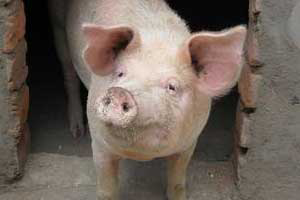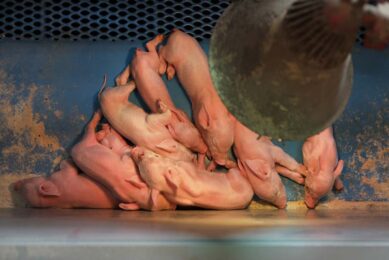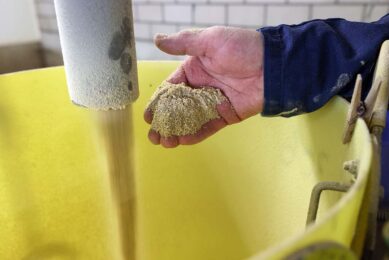Steam pelleting and enzyme supplementation assessed

When diets are fed in liquid form, prior steam pelleting of the diets and enzyme supplementation do not provide additional benefit.
This was concluded by scientists from the University of New England in Armidale, Australia, in combination with Prof Peter Brooks, Plymouth University, UK.
In total 144 individually housed, entire male (Large White × Landrace) weaner pigs of 28 days were individually housed and allocated to a 26-day feeding trial. They were kept on one of the following diets:
- Feed processing method (meal or steam pelleted);
- Feed form (dry or liquid);
- Enzyme addition (basal diet, or basal diet plus 300 ppm xylanase or 100 ppm phytase).
Five days post-weaning, two pigs were removed from each treatment. The basal diet was formulated to be marginally adequate for pigs of this age.
Compared with pigs fed dry diets, pigs fed liquid diets consumed less feed (on average 70 g), had a lower daily gain (on average 49 g) and as a consequence had a lower 26-day weight (about 1.1 kg).
However, pigs fed liquid diets had a better feed conversion efficiency (adjusted to the same dry matter content as dry feed) than pigs on dry diets (1.16 vs 1.20).
Steam pelleting the diets had no effect on feed intake or daily gain, but did improve feed conversion ratio (1.14 vs 1.22). The poorer growth on liquid feeds appeared to result from the feeding method imposing a degree of restriction on feed intake.
Xylanase or phytase supplementation did not significantly affect non-starch polysaccharide (NSP) levels in the diets or growth performance. Phytase supplementation increased daily intake, daily gain and 26-day weight, of pigs fed dry diets, but not those fed liquid diets.
The research was published in Animal Production Science.
 Beheer
Beheer








 WP Admin
WP Admin  Bewerk bericht
Bewerk bericht